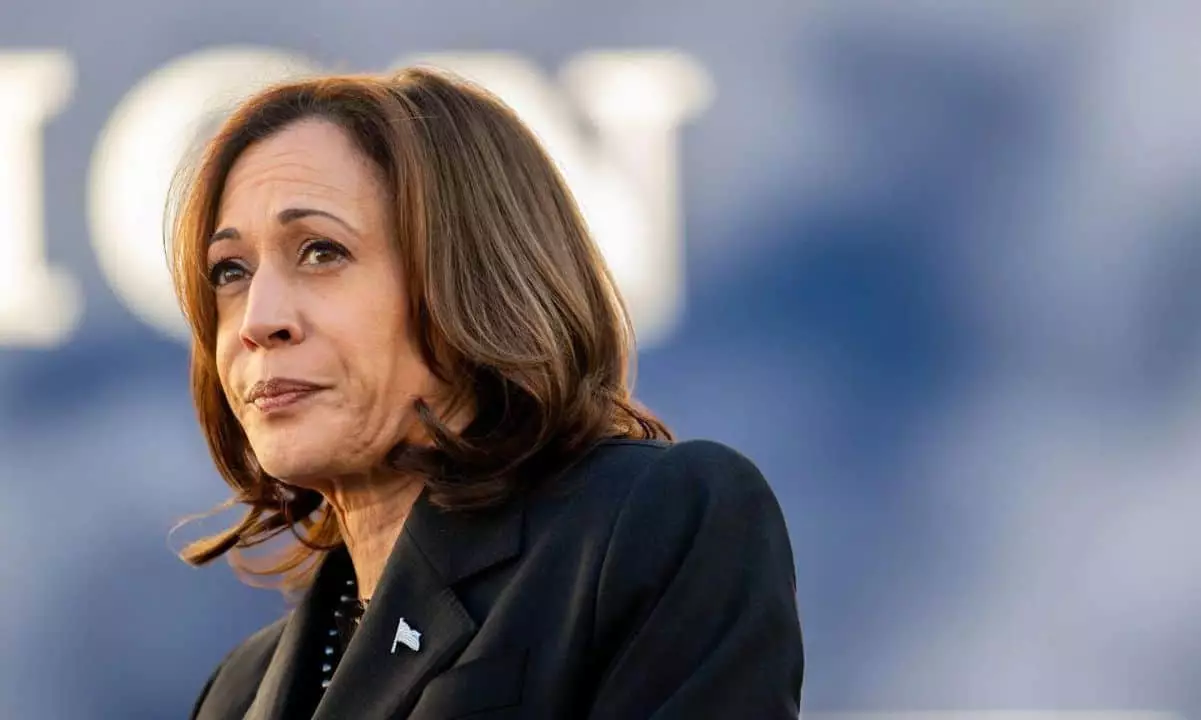The intersection of cryptocurrency and political candidacy has become a significant area of discourse in recent years, as U.S. politicians increasingly articulate their stances on digital assets. One of the latest developments in this dynamic environment was the reevaluation of Democratic presidential candidate Kamala Harris’s position by the lobby group Stand With Crypto, which is backed by Coinbase. This shift raises important questions concerning the authenticity of political support for cryptocurrencies, the implications of public perception, and the role advocacy groups play in shaping political narratives.
Stand With Crypto initially classified Vice President Kamala Harris as a “Supports Crypto” candidate, assigning her a commendable “B” grade. This assessment followed her remarks made during a New York fundraiser on September 22, where she expressed her intention to promote innovative technologies, including digital assets. Advocates in the cryptocurrency community celebrated this endorsement, interpreting her statements as a promising sign of support. However, as the dust settled, critiques surfaced, questioning whether such an elevated grade was justified based solely on a singular statement of vague support.
Vocal critics of Harris’s grade, including Bitcoin enthusiasts and legal experts, began to vocalize their discontent. They argued that the high rating appeared disingenuous given the Biden-Harris administration’s history of skepticism towards cryptocurrency mechanisms and the regulatory complexities surrounding them. In this context, the public’s enthusiasm for Harris’s statements seemed out of step with established facts about her administration’s past actions.
Lobby groups like Stand With Crypto are crucial players in shaping the political narrative surrounding digital assets. While they aim to raise awareness and encourage support for the cryptocurrency industry, they must navigate the fine line between genuine advocacy and mere opportunism. The backlash against Stand With Crypto’s initial rating of Harris highlights the potential pitfalls of this delicate balance—critics suggest that the group was operating under the false assumption that any mention of “innovation” equated to outright support for the crypto world.
Furthermore, the juxtaposition of Harris’s “B” rating with Donald Trump’s solid “A” grade—signifying him as “strongly supportive” of digital assets—presents a compelling narrative about varying political attitudes towards cryptocurrencies. Trump’s multitude of statements concerning crypto suggests a robust commitment, contrasting sharply with Harris’s single statement, which many deemed unclear and non-committal.
In response to the increasing scrutiny and criticism, Stand With Crypto opted to adjust Harris’s classification, indicating insufficient evidence for her pro-crypto stance. This shift reflects an essential evolution within the group as it grapples with the need for clearer criteria in evaluating political candidates based on their support for digital assets.
Logan Dobson, the executive director of Stand With Crypto, acknowledged the backlash and reflected on the group’s decision to enhance their scoring system. The adjustment to signify that candidates with limited statements will be marked as “Needs more information” indicates a move towards a more rigorous, evidence-based approach. This new framework seeks to ensure that political ratings are more transparent, thereby avoiding situations where valuable advocacy efforts could be undermined by perceived misrepresentations.
The tension surrounding Kamala Harris’s crypto rating reveals broader implications for how cryptocurrency advocacy will intersect with political discourse moving forward. As cryptocurrency continues to gain mainstream traction, the demand for politicians to articulate coherent, well-defined positions will undoubtedly increase. Advocacy groups must wield their influence skillfully to foster constructive dialogue while also holding political figures accountable for genuine commitment to the industry.
The saga surrounding the reevaluation of Kamala Harris by Stand With Crypto illustrates the complexities at play in the cryptocurrency political landscape. As the lines between politics, advocacy, and public sentiment blur, both lawmakers and lobby groups must strive for greater clarity in their positions and statements. Only through conscientious engagement can they foster an atmosphere of trust and genuine support for the evolving world of digital assets.

